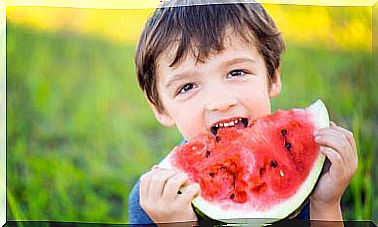Gluten-free Foods: Good For Everyone?
The problem with gluten is that it is present in many more foods than we think, so we should verify our degree of intolerance
Are gluten-free foods good for everyone who eats them? At present the antiglutenic discourse has become very recurrent on the part of the defenders of natural and balanced nutrition.
Beyond food fads, detractors and supporters have valid arguments for and against this substance present in a large number of foods.
Still, the evidence seems to show that this highly protein component may be harmful to a certain group of people.
What is gluten?
Gluten is a vegetable protein substance, present mainly in wheat and other cereals. Those who look askance at it question the high calorie content of this food product.
Some have the hypothesis that the human body is not yet ready to digest and adapt properly to this substance and to wheat in general.
While it is true that the human body does not have enzymes to fully digest gluten, this does not mean that it is harmful. In fact, gluten can be high in protein as long as it is taken in balance.
What is certain is that there is a specific type of person who does not benefit. This is the case for people who suffer from celiac disease. It is a digestive disorder that basically consists of gluten intolerance.
Do you know if you are celiac?

Among the symptoms experienced by people with celiac disease we find fatigue, vomiting, dermatitis or slow digestion.
In addition, in some cases, temporary intolerances to other foods, such as lactose, may develop. This is due to the wear and tear of the stomach that causes it not to digest other substances well.
Although well determined, these signs are very general and we can only be certain of having the disease through medical tests.
Only in Spain there are 450,000 properly diagnosed people. The problem is that many do not even have major symptoms and there is very little information about it in the population.
However, the worst thing is that this condition has no cure and can last a lifetime. The best treatment for these patients is to maintain a rigorous gluten-free diet.
Wheat-free diet
It is not always easy to eat a diet with gluten-free foods, among other things because it is found in many products that we consume on a daily basis. For example, this is the case for foods such as:
- Pasta
- Bread
- Sauces
- White flour
- Cereals
- Biscuits
- Beer
The ideal is to go without all these products and compensate the diet with others that are easy to tolerate such as:
- Vegetables
- Fruit
- Vegetables
- Chicken
- Rice
The challenge is being able to make the change without losing the necessary nutrients or losing weight. In addition, it must be taken into account that there are many commercial products that use wheat in their composition.
Grocery Shopping: Gluten-Free Foods

In this sense, it all begins with our purchasing and consumption habits. The golden rule is to read the ingredients on the food packaging.
Fortunately, most countries require “100% gluten-free” labeling from producing companies. Therefore, the buyer should only read and discard.
However, there are foods that should not have this nutrient and yet they do. This is the case of:
- Soy sauce
- Salad dressings
- Yogurts
- Nuts
- Blue cheese
- Sausages
- Some chicken presentations
Likewise, special care must be taken with whole grain products since, in general, they incorporate it.
Cross contamination
The cooking process itself is radically modified due to the risk of cross contamination.
This concept refers to the high probability that we have of contaminating gluten-free foods when we cook them with others that do have this protein substance.
For example, if we fry some aubergines or a chicken with oil previously used to fry potatoes or pastries, some traces of the wheat compound could be transferred to our food.
You also have to take precautions with group or family meals. Not everyone will follow such a strict nutritional routine.
Some tolerable products

There are gluten-free cereals, such as oatmeal. Therefore, they can be tolerated by celiacs. However, it is advisable not to exceed its consumption since it is still susceptible to causing allergies.
In addition, although it does not contain gluten, it contains other substances that can be harmful for some celiacs. Therefore, it is advisable to exercise extreme caution. We can try a little and if we feel bad, stop taking it immediately.
As you can see, gluten is not bad in itself. In fact, in adequate amounts, it is a protein that can provide us with great benefits. We should only be careful if we are celiac or have a certain degree of intolerance. In this case we should follow a diet with gluten-free foods.
Therefore, if you have experienced any of the aforementioned symptoms and you think you could be intolerant, we encourage you to go to the doctor to find out.
Main image courtesy of © wikiHow.com









